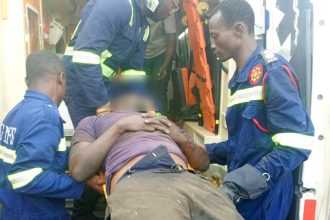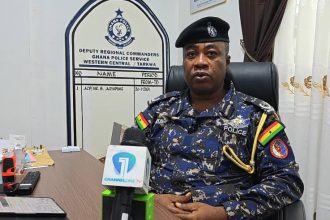More than 900 Ghanaians die from prostate cancer annually, Chairman of the Taussig Cancer Institute, Professor Alex Adjei, has said.
According to him, the disease which was contracted by an estimated 750 people each year, kills more than other cancers in the country.
Prostate Cancer is a cancer that occurs in the prostate; the prostate is a small walnut-shaped gland in males that produces the seminal fluid that nourishes and transports sperms.
Speaking at a lecture on prostate cancer in Accra yesterday, Prof.Adjei appealed to all men aged 50 and above to check their prostate as early detection increases the survival rate.
It was organised by the Soroptimist International Ghana on the theme, ‘How can we stop deaths from prostate cancer?’
He explained that the common causes of prostate diseases include prostatitis, an infection of the prostate; Benign Prostatic Hyperlasia (BPH), commonly known as prostate enlargement and prostate cancer.
Prof.Adjei stated that BPH, was more common amongst men than prostate cancer, however BPH was not a known cause of prostate cancer.
On preventing the disease, Prof.Adjei advised that “you must avoid smoking; reduce the alcohol intake and red meat consumption; eat healthy food like vegetables, fish, poultry and nuts and also avoid taking supplements if possible.”
He cited age, ethnicity and genetics as the risk factors of prostate cancer.
A urologist at the Korle Bu Teaching Hospital (KBTH), Dr Bernard Tondoh, noted that the use of alternative medicine by persons living with prostate cancer had been identified as the major cause of critical cases of prostate cancer at the KBTH.
“One of the problems we face as urologists are that our patients tend to use alternative medicines before coming to us because prostate cancer does not present symptoms and persons living with prostate cancer resort to alternative medicine leaving them in a critical state,” he said.
DrTondoh underscored the need for patient education on prostate cancer as more education would ensure patients made the right decisions that could save their lives saying that “Once it’s discovered early, it can be cured.”
Sharing his experience, a prostate cancer advocate, Mr Nathaniel Allotey Adam, said that he was diagnosed of prostate cancer during his yearly routine visits to the hospital.
He explained that he was fortunate to have the cancer detected early but it was not always the case for some people.
He urged men to ignore rumours that men become impotent after obtaining treatment for the disease as he was able to have normal erections after the surgery to remove the tumor.
















